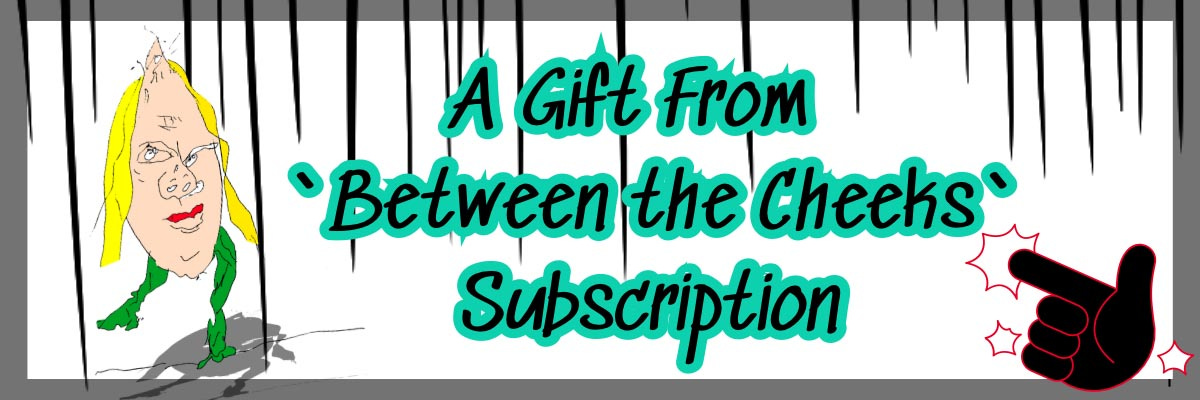Should We Obey The Government?
The following is a transcript of this video.
“For it was a witty and a truthful rejoinder which was given by a captured pirate to Alexander the Great. The king asked the fellow, “What is your idea, in infesting the sea?” And the pirate answered, with uninhibited insolence, “The same as yours, in infesting the earth! But because I do it with a tiny craft, I’m called a pirate: because you have a mighty navy, you’re called an emperor.”
St. Augustine, City of God
These words written by St. Augustine encapsulate one of the most fundamental problems of political philosophy. Namely why governments are morally justified to take actions that no individual, or group of individuals, are permitted to take. Governments demand a portion of our income, decide what substances may be consumed, regulate and restrict voluntary transactions, spy on our communications, place limits on our speech, drop bombs on foreign countries, and in some cases conscript us to fight their wars. If we disobey, we risk being thrown in a cage, or in extreme cases killed. Or as the contemporary philosopher Michael Huemer writes:
“Acts that would be considered unjust or morally unacceptable when performed by nongovernmental agents will often be considered perfectly all right, even praiseworthy, when performed by government agents. Why do we accord this special moral status to governments, and are we justified in so doing? This is the problem of political authority.”
Michael Huemer, The Problem of Political Authority
In this video, relying on Huemer’s book The Problem of Political Authority, we show why political authority is illegitimate and cannot be morally justified. We then examine the cognitive biases that lead people to mistakenly believe that government agents should be allowed to operate outside the bounds of morality that confine the rest of us.
The most famous attempt to legitimize the power of the state is the social contract theory. This theory is based on the idea that there is a contractual relationship between the government and those governed which obligates the government to provide certain services, such as law and order, and the citizens to pay taxes and obey the law. This theory, however, is not grounded in reality. None of us have ever been presented with a contract requesting our consent, nor has any one signed one. It was not explicit contractual relations that gave rise to most modern states, but war and conquest.
To sidestep the problems with the original social contract theory, some political philosophers propose that it is implicit consent, rather than explicit, that grounds the social contract between citizen and state. Implicit consent is consent granted through one’s conduct, rather than through written or verbal communication.
Huemer suggests there are four main ways that we can grant implicit consent. Firstly, there is passive consent where “one expresses agreement to a proposal simply by refraining from opposing it.” (Michael Huemer, The Problem of Political Authority) Secondly, there is consent through acceptance of benefits, arising when “one commits oneself to accepting certain demands by soliciting or voluntarily accepting benefits to which those demands are known to be attached.” (Michael Huemer, The Problem of Political Authority) A third type is ‘consent through participation’ and occurs when one “implicitly consents to the rules governing a practice by voluntarily participating in the practice” (Michael Huemer, The Problem of Political Authority).
These first three forms of implicit consent fail to legitimize political authority as they violate a basic criterion for a valid contract. This criterion requires that each party have a reasonable way of rejecting the proposed agreement. If there is no way that one party can express dissent, then it is not a contractual relationship, but one of servitude or bondage. In the relationship between citizen and state none of these forms of implicit consent offers a way to signal rejection, or as Huemer explains:
“Almost everyone knows that the state will still impose the same laws and the same taxes on one, regardless of whether one objects to the government, accepts a government service, or participates in the political process. Therefore, one’s failure to object, one’s acceptance of government services, and even one’s participation in the political process cannot be taken to imply agreement. . .”
Michael Huemer, The Problem of Political Authority
Because of this problem with the first three forms of implicit consent many turn to a fourth alternative which is called ‘consent through presence’ and arises when one “indicates agreement to a proposal merely by remaining in some location” (Michael Huemer, The Problem of Political Authority). This form of implicit consent forms the basis of the often-heard response expressed to those who show skepticism of political authority: “If you don’t want to obey the government, you can leave”. Assuming we are not serving a prison sentence the option to leave is open to us. Is our continued presence, therefore, indicative of our implicit consent? While consent through presence does meet the criteria of offering a way to reject the supposed agreement between citizen and state, the way out it offers is unreasonable. For unless one assumes that the state owns all property in its territory, which would amount to full blown communism, then the idea that to reject the supposed contract that authorizes political authority we must give up something we own, is absurd, or as Huemer explains:
“If a board chairman cannot demand that board members pay him a dollar to express dissent from a proposed schedule change, how can someone be required to give up home and job and leave all friends and family behind to express disagreement with a contract [between citizen and state]?”
Michael Huemer, The Problem of Political Authority
The inadequacies of implicit consent theories have led some to suggest that consent arises through the will of a majority. The problem with this theory is that to accept it, one must also accept the premise that the wants of a large group supersede those of smaller groups, as attaining unanimous consent to political authority would be impossible. Typically, however, it is not ethically permissible for a group of people, merely because of their numerical superiority, to impose their will on a smaller group. As an example, if we are out for dinner with 5 people, most of us would not accept the notion that if 4 of them agree that we should pay the whole bill this morally obligates us to do so. Nor would most of us accept the idea that the consensus of a majority group can strip a minority group of their rights, relegate them to concentration camps or send them to an early death. So how can the consensus of a majority grant government a special moral status to use violence to enforce its commands on individuals who dissent from their rule. Or as Huemer writes:
“Can the agreement only of a majority of society’s members – whether broad agreement to have a government or agreement to have specific policies or personnel – confer authority on government? At first glance, it is unclear how this might be thought to work. The opinions or decisions of a larger group of people do not normally suffice to impose obligations on a smaller group or an individual who does not agree with a larger group, nor do they typically justify coercive behavior on the part of the larger group.”
Michael Huemer, The Problem of Political Authority
If the consent of a majority can’t justify political authority, perhaps a consequentialist argument can. A consequentialist argument posits that the benefits that arise from granting government a special moral status are significant enough to warrant the costs of obedience. While consequentialist arguments are popular, they are also flawed. They require a subjective interpretation as to whether a government is in fact beneficial to a society, as there are no clear objective criteria that can measure the total costs and benefits of a government. Throughout history, furthermore, there are many examples of governments who operated in ways that were clearly a net negative for their society such as Communist China under Mao, Pol Pot’s Cambodia, Nazi Germany, or Soviet Union under Stalin – in these cases the consequentialist argument would not hold.
But even if one believes the benefits of one’s government clearly outweigh the costs of obedience, it is still not obvious how providing benefits justifies political authority. If providing benefits gives agents of the state a special moral status, should other individuals or groups be able to obtain this status if they provide significant benefits? It is doubtful that many people would be willing to grant a billionaire philanthropist, or a beneficial vigilante, a moral status similar to that of an agent of the state and so some may claim that only a government can obtain the elevated moral status of political authority. But such a response would be begging the question, or in other words, assuming what must be proven, and what must be proven in this case is why governments have a special moral status that enables them to do what is immoral or illegal for everyone else.
The major theories that have been used to justify political authority all suffer from major flaws. But the fact remains that most people believe in the legitimacy of political authority. Why is this? Huemer suggests that it is because we possess cognitive biases that predispose us to obey authority figures and to convince ourselves that the authority figures we obey are justified in the way they behave, even if their behaviour is immoral or harms us. Or as Huemer writes:
“I do not believe that the many who accept political authority have all made this mistake by chance. I believe that there are specific features of the human mind and of the situation most people find themselves in that contribute to a moral illusion of authority.”
Michael Huemer, The Problem of Political Authority
One cognitive bias that promotes belief in the legitimacy of political authority is the status quo bias. This bias, rooted in our preference for stability and fear of change, leads us to favour the established practices, norms, and customs of our society and to view them as moral, right, and good. The status quo bias helps explain why societies accept customs that to an outsider appear peculiar, immoral, or absurd. The strength of the status quo bias can also account for why so few of us question the legitimacy of political authority. All of us were born into societies where political authority is seen as legitimate, we are taught that obedience is moral, and so it seems normal to grant agents of the state a special moral status. Or as Huemer writes:
“What does [the status quo bias] tell us about the belief in political authority? Government is an extremely prominent and fundamental feature of the structure of our society. We know that people tend to have a powerful bias in favor of the existing arrangements of their own societies. It therefore stands to reason that, whether or not any government were legitimate, most of us would have a strong tendency to believe that some governments are legitimate, especially our own and others like it.”
Michael Huemer, The Problem of Political Authority
Stockholm Syndrome can also account for the widespread belief in the legitimacy of political authority. In 1973 a Swedish convict out on parole named Jan-Erik Olsson attempted to rob a bank in Stockholm and in the process held four bank employees hostage. The hostages were held for six days, but a strange thing occurred after they were released. None of them would testify against Olsson, instead they raised money for his defense. During their captivity these hostages developed warm emotional ties to their captor and so the term Stockholm Syndrome is now used to refer to the psychological phenomenon whereby individuals under the control of a powerful person, or group, develop positive feelings toward them, behave in ways that are pleasing to them, and sometimes goes as far as to defend their actions. It has been suggested Stockholm Syndrome is an unconscious defense mechanism that promotes survival. But whatever the cause, this psychological phenomenon can be extended from the dynamic of hostage and kidnapper, to the dynamic of citizen and state. Like the hostage, the well-being of citizens is increasingly dependent on their willingness to behave in ways that are pleasing to the government, or as Huemer writes:
“The general precursors for the development of Stockholm Syndrome are reasonably well satisfied in the case of citizens of modern states. It is therefore not surprising to find that citizens tend to identify with their governments, adopt their governments’ perspectives, and develop emotional attachments (often considered ‘patriotism’) to their governments. Just as Stockholm victims tend to deny or minimize their captors’ acts of coercion, many citizens tend to deny or minimize their government’s coercion.”
Michael Huemer, The Problem of Political Authority
A third psychological mechanism which promotes belief in the legitimacy of political authority is cognitive dissonance. Cognitive dissonance is the uncomfortable psychological state that arises when two or more beliefs, values, or behaviours clash with each other. For example, if we harm another person, this may clash with the belief that we are a good person. As dissonance is an uncomfortable state, we tend to find ways to escape from it. In the example of harming an innocent person, we may tell ourselves that the other person is bad and deserving of our mistreatment. Obedience to political authority can trigger cognitive dissonance. For example, we are forced to pay taxes which fund immoral policies such as dropping bombs on innocent victims or imprisoning people for victimless drug crimes. To quell the dissonance between the belief that we would never knowingly support killing, or imprisoning, an innocent person and the awareness that our tax dollars fund these very acts, many rely on their belief in the legitimacy of political authority to quell their dissonance. Governments possess a special moral status, we tell ourselves, which makes us morally obligated to obey, even if this obedience sometimes makes others suffer. Or as Huemer explains:
“. . . [cognitive dissonance] generates a bias in favor of recognizing political authority. Almost all members of modern societies have frequently submitted to the demands of their governments, even when those demands required actions that they would otherwise be strongly disinclined to perform. For example, most have paid very large amounts of money to the state in satisfaction of its taxation demands. How do we explain to ourselves why we obey? We could explain our behavior by citing fear of punishment, habit, the drive toward social conformity, or a general emotional drive to obey whoever holds power. But none of those explanations is emotionally satisfying. Much more pleasing is the explanation that we obey because we are conscientious and caring citizens, and we thus make great sacrifices to do our duty and serve our society.”
Michael Huemer, The Problem of Political Authority
When we recognize that features of the human mind predispose us to accept the legitimacy of political authority, and that the theories that attempt to justify this authority are weak, this should motivate us to take a more skeptical view of government. But even if the authority of the state is illegitimate it does not follow that disobeying all government laws is morally justified. Some laws correspond to moral principles that are independent of state authority, such as don’t cheat, steal, or kill and these laws should be obeyed regardless of the problem of political authority, or as Huemer explains:
“. . .there are some laws that you should obey for independent moral reasons. For instance, you should not rob other people. This is not because your doing so might destroy the government. It is because robbing other people would be an injustice to the specific people robbed. This is not an example of a political obligation; it is simply an example of a general moral obligation to other people.”
Michael Huemer, The Problem of Political Authority
But with that said skepticism of political authority is warranted and the more people who adopt this attitude the better. For as the history of the past several centuries clearly shows, obedience to government, not disobedience, has been the greater cause of death and destruction. Millions upon millions of people have died fighting statist wars and millions more were killed by those who obeyed the oppressive policies of totalitarian regimes. What we need today are more people who question political authority and who stand ready to disobey when politicians issue commands that are immoral or deleterious to a flourishing society. Defenders of the state will claim that this attitude will throw society into a state of chaos, but as Huemer notes:
“. . .the picture of ordinary people as perched on the verge of disorder, waiting for an excuse to run rampant in disregard of law and order, flies in the face of everything we know about the psychology of authority. . .the average human being is far more likely to commit serious crimes in the name of obedience to authority than he is to rashly disobey justified commands of an authority figure. Literally millions have died because of the widespread disposition to obey unjust commands. So even if my skepticism about authority goes too far, it will more likely serve as a valuable corrective to our excessive tendency to obey rather than posing a danger of destroying social order.”
Michael Huemer, The Problem of Political Authority










 All of our Links: https://linktr.ee/freedomiscallingyou
All of our Links: https://linktr.ee/freedomiscallingyou







